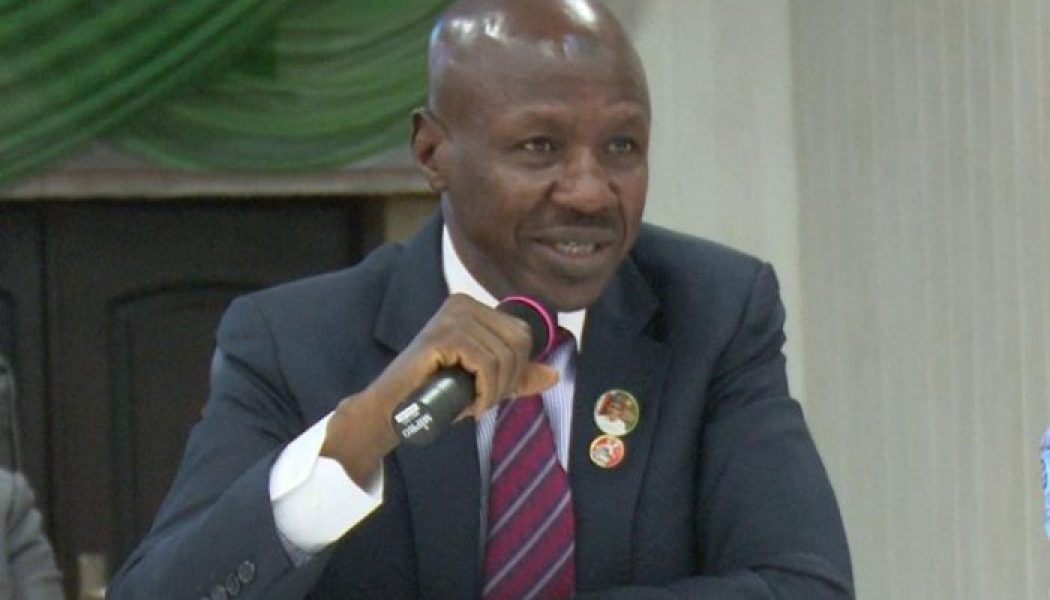The acting Chairman, Economic and Financial Crimes Commission, Ibrahim Magu, has disclosed that his agency has recovered over N527bn, $53m and £122,89 through the whistle-blowing policy initiated by the Federal Government in 2016.
Magu revealed this while speaking in Port Harcourt during a town hall meeting on whistle-blowing and the fight against corruption in Nigeria. The EFCC boss added that the figure has been on record since May 2018.
He explained that the policy had enabled patriotic Nigerians to report criminal acts, which were against the growth and development of the country.
He said, “As at May 2018, we recovered over N527bn, $53m and £122,89 through the whistle-blowing policy. More successes are being made and the response by members of the public to the policy has been very encouraging.
“The government’s whistle-blowing policy, which was introduced in 2016, is geared towards fraud detection, tracking and reporting to appropriate agencies and to enable patriotic citizens to report criminal acts such as mismanagement or misappropriation of public funds and assets, like properties and vehicles; financial malpractice or fraud; collecting/soliciting bribes; corruption; diversion of revenues; unapproved payments; splitting of contracts; procurement fraud; kickbacks and over-invoicing.”
Read also: Stampede claims five lives at Buhari’s campaign in Taraba
Magu was represented at the event by Usman Mukhtar, a top official of the EFCC. He explained that the fear of victimisation or attacks is a major hurdle stopping Nigerians from reporting criminal acts to the agency, noting that the issue has been addressed with the Whistle-Blower Protection Act 2017.
“Many would-be whistle-blowers are afraid of reprisals, attacks and other attendant risks involved in volunteering information about suspicious activities around them. However, this challenge is already addressed by the Whistle Blower Protection Act passed by the National Assembly in 2017.
“The Act provides that a person who makes a disclosure shall not be subject to victimisation by his or her employers or by fellow employees,” he added.



Leave a Reply